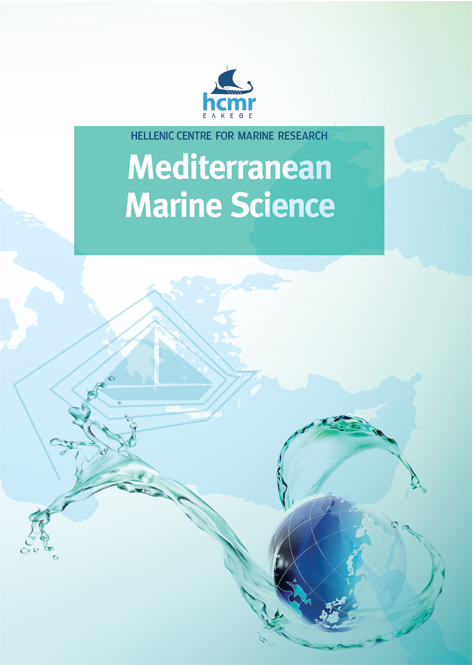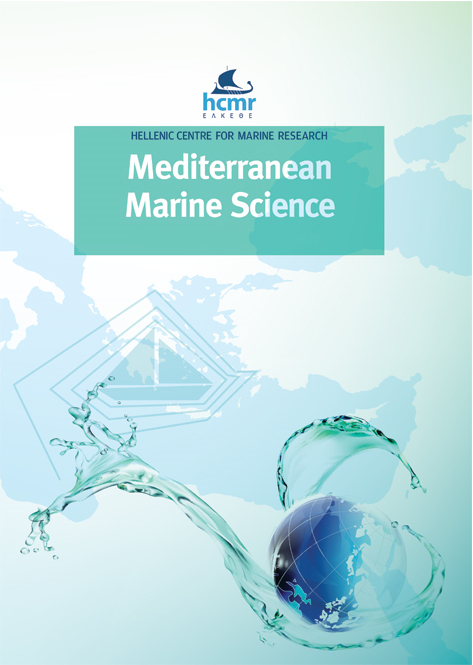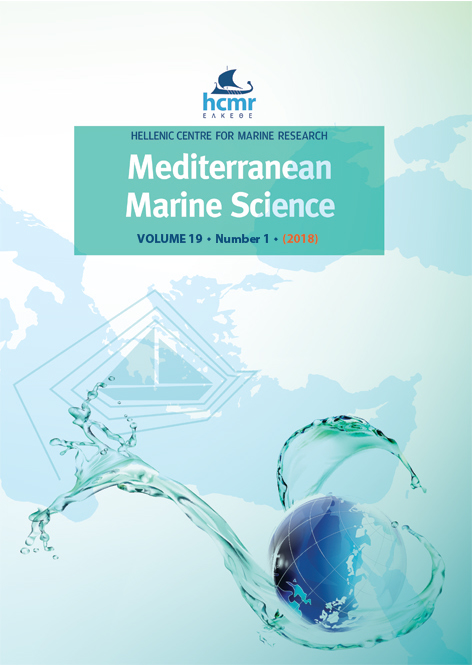Species composition of ichthyoplankton assemblages: a response to seasonal temperature changes

Περίληψη
The ‘mean temperature of the catch’ (MTC; Cheung et al. 2013, Nature 497: 365-368.) was computed for 59 ichthyoplankton surveys conducted in several regions of the Eastern Mediterranean (off the coasts of Greece and Turkey) and in the Black and Marmara Seas. This covered 162 fish species whose preferred temperatures (PTs) were derived mainly from the data used to derive Aquamaps (see www.aquamaps.org). The (geometric mean) MTCs estimates from these 59 surveys correlated strongly with observed sea surface temperatures (SSTs), once account of the sampling regions was taken. Here, this relationship is quantified using a Type II or ‘functional’ (multiple) regression. Overall, the results suggested that the MTC could be an important descriptor of the taxonomic composition and temperature affinities of ichthyoplankton assemblages.
Λεπτομέρειες άρθρου
- Πώς να δημιουργήσετε Αναφορές
-
KESKIN, ÇETIN, & PAULY, D. (2019). Species composition of ichthyoplankton assemblages: a response to seasonal temperature changes. Mediterranean Marine Science, 20(1), 222–226. https://doi.org/10.12681/mms.18263
- Τεύχος
- Τόμ. 20 Αρ. 1 (2019)
- Ενότητα
- Short Communication
Authors who publish with this journal agree to the following terms:
- Authors retain copyright and grant the journal right of first publication with the work simultaneously licensed under a Creative Commons Attribution Non-Commercial License that allows others to share the work with an acknowledgement of the work's authorship and initial publication in this journal.
- Authors are able to enter into separate, additional contractual arrangements for the non-exclusive distribution of the journal's published version of the work (e.g. post it to an institutional repository or publish it in a book), with an acknowledgement of its initial publication in this journal.
- Authors are permitted and encouraged to post their work online (preferably in institutional repositories or on their website) prior to and during the submission process, as it can lead to productive exchanges, as well as earlier and greater citation of published work (See The Effect of Open Access).






